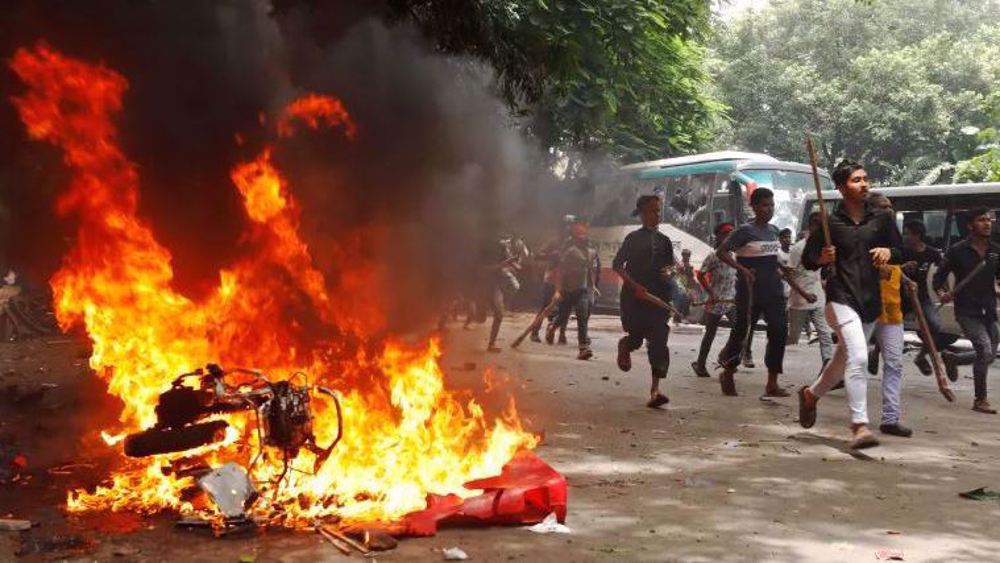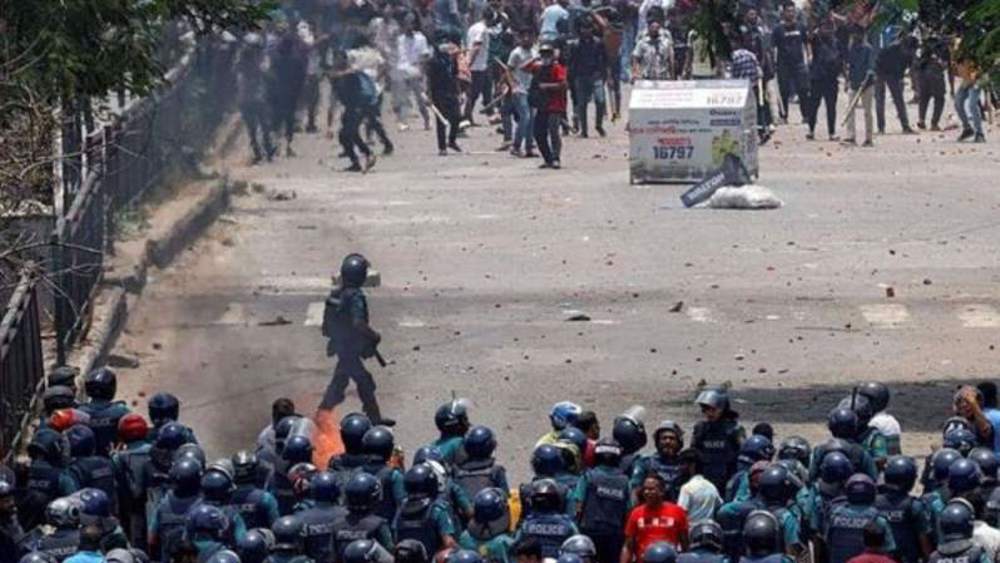93 killed as Bangladesh protesters demand PM Hasina resign
At least 93 people have been killed, including 14 police officers, and more than a thousand others injured in violent clashes between anti-government protesters and police in Bangladesh, in one of the deadliest days since demonstrations began about three weeks ago.
Police on Sunday fired tear gas and threw stun grenades to disperse tens of thousands of protesters demanding the resignation of 76-year-old Prime Minister Sheikh Hasina.
Demonstrations that began last month against civil service job quotas have escalated into some of the worst unrest of the 15-year rule of Hasina.
Police as well as ruling party activists clashed with anti-government protesters in at least 20 districts on Sunday.
Local media reports citing law enforcement officials suggested Sunday's toll may have surpassed 93 deaths, taking the total killed since protests began in July to at least 300.
Police claimed that anti-government protesters attacked their officers, including storming a station in the northeastern town of Enayetpur.
"The terrorists attacked the police station and killed 11 policemen," said Bijoy Basak, a deputy inspector general.
Police and doctors at hospitals said at least 12 people were killed in the capital Dhaka, with several of the victims suffering bullet wounds, while 18 died in Bangladesh's northern district of Sirajganj.
"The shocking violence in Bangladesh must stop," United Nations rights chief Volker Turk said in a statement.
He expressed his concerns about further deaths ahead of a mass march on Dhaka planned for Monday.
Demonstrations against the 56 percent quota system in public jobs started in the South Asian nation last month, prompting the government to close educational institutions across Bangladesh.
As per the quota system, 30 percent of the 56 percent quotas in public jobs are allocated for the sons and grandsons of individuals who took part in Bangladesh’s war of liberation against Pakistan in 1971.
Bangladesh implemented its quota system in 1972 under the leadership of Hasina's father, Sheikh Mujibur Rehman, who was the founding father and first president of the country.
In 2018, the quotas were declared unlawful and eliminated. However, the decision was reversed on June 5, when the country’s high court reinstated a quota that allocated 30 percent of government positions for the offspring of “freedom fighters.”
An appeal to this change is scheduled to be heard by the Supreme Court on August 7.
US fighter aircraft shot down ‘in friendly fire’ amid aggression on Yemen
Yemeni FM: Israel’s sponsors accountable for ongoing aggression on Sana’a
Eight Palestinians killed as Israel attacks Gaza school, hospitals
VIDEO | Rome, Milan host new protests in solidarity with Palestinians
Dec. 21: ‘Axis of Resistance’ operations against Israeli occupation
Spain jurists demand ties with Israel ties be cut
VIDEO | Press TV's news headlines
VIDEO | Iran honors top Science Olympiad medalists











 This makes it easy to access the Press TV website
This makes it easy to access the Press TV website